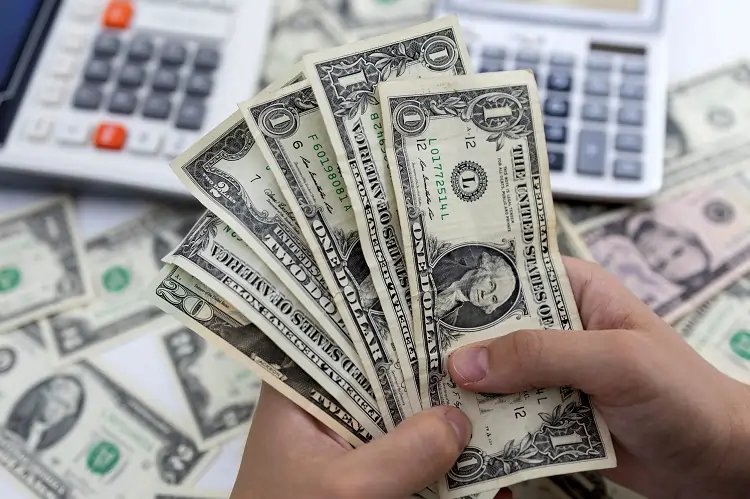Dollar notches weekly gain as traders reassess rate cut expectations


By Chibuike Oguh and Amanda Cooper
NEW YORK/LONDON (Reuters) -The U.S. dollar was set for its biggest weekly gain in over a month on Friday, as markets reassessed expectations of future interest rate cuts and with the view that President-elect Donald Trump’s policies could be inflationary.
The dollar has benefited from market expectation that Trump administration policies, including tariffs and tax cuts, could stoke inflation, leaving the Federal Reserve less room to cut interest rates.
Fed Chairman Jerome Powell said on Thursday the U.S. central bank did not need to rush to lower interest rates, prompting traders to axe their more aggressive bets on a rate cut next month and beyond.
The greenback was set to notch a weekly gain against the Japanese yen after it traded above 156 yen this week for the first time since July. It was last down 1.4% to 154.145 per dollar.
The euro was headed for the second straight week of losses after slumping to its lowest level since October 2023. It was last up at $1.054025.
“Today is more about the Fed than anything else, and I’m a bit surprised that the euro is a little stronger in the face of what were perceived to be more hawkish comments from Powell,” said Thierry Albert Wizman, global FX and rates strategist at Macquarie in New York.
“People are maybe thinking that there’s going to be a bit more chaos next year in view of some of the questionableness of these (U.S. cabinet) candidate appointments. So I can see why people are losing a little bit of faith in the Trump trade and the American exceptionalism story generally.”
Commerce Department data on Friday showed that U.S. retail sales increased slightly more than expected in October, but underlying momentum in consumer spending appeared to slow at the start of the fourth quarter.
Boston Fed president Susan Collins in comments published Friday in the Wall Street Journal also said rate cuts could be paused as soon as the Dec. 17-18 meeting, depending on upcoming data on jobs and inflation. The probability of a December cut has dropped to around 61% from closer to 82% a day ago, according to CME’s FedWatch tool.
Sterling was on track for its steepest weekly fall since January 2023, at roughly 2.4%. It was last down 0.38% at $1.2620. The pound showed little reaction to data showing Britain’s economy contracted unexpectedly in September and growth slowed to a crawl over the third quarter.
The dollar index is trading around a one-year high against a basket of currencies at 107.07, having risen nearly 1.65% this week, set for its best performance since September. It was last down 0.19% at 106.68.
In cryptocurrencies, bitcoin traded around $90,000, as some investors took profits after a stellar run. Bitcoin gained 2.64% to $90,545.00. Ethereum declined 2.17% to $3,051.30.
“Today is really just an ahead-of-weekend consolidation; we haven’t taken out any key levels like 106 in the euro like 127 in sterling,” said Marc Chandler, chief market strategist at Bannockburn Global Forex in New York.
“The market overreacted to Powell yesterday, but U.S. interest rates are still firm. So whatever forces were unleashed by the U.S. election, they haven’t been exhausted yet.”
(Reporting by Chibuike Oguh in New York and Amanda Cooper in London; editing by Jonathan Oatis)
The U.S. dollar is the official currency of the United States and is widely used as a global reserve currency.
Interest rates are the cost of borrowing money or the return on savings, expressed as a percentage of the principal amount.
Cryptocurrencies are digital or virtual currencies that use cryptography for security and operate on decentralized networks, typically based on blockchain technology.
Inflation is the rate at which the general level of prices for goods and services rises, eroding purchasing power.
Foreign currencies are currencies used in countries other than one's own, often traded in the foreign exchange market.
Explore more articles in the Trading category











